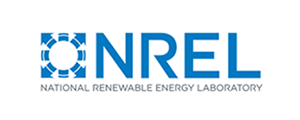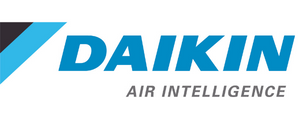2024 Forum Program
Monday, May 20, 2024
Tuesday, May 21, 2024
8:00 AM - 5:30 PM
Registration Open
Convention Foyer
9:00 AM - 2:30 PM
Embodied Carbon Summit
Carolina A
Join us for the first annual Embodied Carbon Summit on May 21, 2024!
A new Embodied Carbon Summit will be held the day before the Getting to Zero Forum. The Summit includes a networking reception and a half-day workshop with opportunities for design building professionals to understand the embodied carbon landscape. Join industry leaders and executives to advance efforts for getting to zero embodied carbon emissions.
Sponsored by:
10:00 AM - 12:00 PM
Bank of America Stadium Tour
In 2018, Bank of America Stadium set out to improve fan comfort and indoor air quality while reducing costs and lowering the venue’s energy use. After a complete comfort system overhaul, Trane was able to improve the stadium’s climate-conditioning capability and provide energy savings of around $80,000 per year. The Bank of America Stadium cooling system upgrades align with North Carolina’s statewide goal of reducing greenhouse gas emissions by 40 percent by 2025. During this tour, you’ll see the upgrades that helped to reduce the stadium’s energy usage by 1.7 million kilowatt hours, and helps the stadium avoid 521 metric tons of greenhouse gas emissions every year. Roundtrip transportation is provided from the Sheraton Charlotte.
Sponsored by:
10:00 AM - 1:30 PM
OFFSITEK Tour
OFFSITEK is leading the transformation of the construction industry with their cutting-edge advanced manufacturing prefabrication process that delivers value to builders while streamlining all construction processes under one roof. Join us at their world-class automated facility for a tour and demonstration, and learn about efficient industrialized construction. Transportation will be provided, picking up from and returning to the Sheraton Charlotte.
Sponsored by:
3:00 - 4:30 PM
Opening Plenary Session
Charting the Path to Zero: How to Leverage Connection and Collaboration for Lasting Change
Symphony Ballroom
In the opening plenary for the 2024 Getting to Zero Forum, join industry leaders for a dynamic armchair discussion moderated by Dr. Carolyn Snyder, Deputy Assistant Secretary for Buildings and Industry, U.S. Department of Energy. In this action-oriented dialogue, hear from Illya Azaroff with AIA’s board of directors, Lucas Hamilton with Saint-Gobain, and Holly Paeper with Trane Technologies, who will share their insights and strategies on how to support best practices, advanced technology, and innovations for increased market adoption. Together, we’ll explore tangible steps and transformative ideas that drive net zero buildings and set the stage for impactful change.
Sponsored by:
Moderator:
Dr. Carolyn Snyder, U.S. Department of Energy
Speakers:
Illya Azaroff, AIA
Lucas Hamilton, Saint-Gobain
Holly Paeper, Trane Technologies
4:30 - 6:00 PM
Welcome Reception
Outside Symphony Ballroom
Join us to kick off the 2024 Getting to Zero Forum and celebrate with friends both old and new.
Exhibits open.
Wednesday, May 22, 2024
8:00 - 5:30 PM
Registration Open
Convention Foyer
8:00 - 9:00 AM
Networking Breakfast + Exhibitor Showcase
Outside Symphony Ballroom
Exhibits open.
9:00 - 10:30 AM
Breakout 1 (Concurrent Sessions)
Breakout 1.1
From Policy to Action: Essentials of Building Performance Standards
Room: Mecklenburg 1
This session will provide a foundational knowledge of Building Performance Standards (BPS), explain the different stages of passing and implementing equitable BPS policy and explore how to access the BPS technical assistance network. The session’s panel of expert speakers from federal, municipal, and private sectors will provide examples of state and regional policy, describe effective strategies, how to leverage partnerships, and highlight opportunities to drive change.
Moderator:
Ben Rabe, New Buildings Institute
Speakers:
Katie Bergfeld , D.C. Department of Energy and Environment
Kimberly Cheslak, PNNL
Debbie Driscoll, NEEA
Billierae Engelman, U.S. Department of Energy
Sharon Jaye, Denver Office of Climate Action
Breakout 1.2
Navigating the Journey to Net-Zero: Overcoming Challenges, Seizing Opportunities
Room: Mecklenburg 2
Join us for an insightful session delving into the unique challenges and opportunities faced by public and private building owners on their journey to net-zero. Explore the financing and policy measures that can persuade owners and developers to embrace sustainability and energy efficiency. Learn the tools and strategies needed to support the transition to net-zero like measuring and mitigating carbon footprints and embracing circular design principles in new construction to achieve our net-zero goals.
Moderator:
Tim Thiel, Covestro
Speakers:
Mark Bacon, Leyton
Luke Lanciano, The Tower Companies
Peter Nelson, Salt Lake City Corporation
Vicki Worden, Green Building Initiative
Sponsored by:
Breakout 1.3
Building for Tomorrow: Practical Strategies for Reducing Embodied Carbon and Sustainable Design
Room: Mecklenburg 3
In this session, speakers will showcase practical strategies for implementing embodied carbon reduction plans, from material selection to using infographics that demystify embodied carbon to engaging owners, design teams, and contractors throughout building design and construction processes. Learn how cost-effective applications and interdisciplinary collaboration can lead to innovative solutions that address net-positive carbon, water efficiency, biophilic design, equity, and occupant health.
Moderator:
Remy Moorhead, Buck Moorhead Architect
Speakers:
William Abrahamson, Grimm + Parker Architects
Nicole Laky, King County Metro
Brian Meinrath, Atelier Ten
Baha Sadreddin, Microsoft
Amy Upton, Grimm + Parker Architects
Sarah Wood, Jacobs
Breakout 1.4
Building Decarbonization in Action: Case Studies on Emission Reduction and Innovation in Educational and Municipal Buildings
Room: Carolina A
Delve into the details of three dynamic public buildings projects. The modernization of the Silvio J. Mollo Federal Building showcases a holistic approach to reducing emissions and exemplifies existing building reuse. The City of San Diego’s ambitious goal of achieving zero emissions in municipal facilities by 2035 sparked a collaborative effort to prioritize reduction, leverage funding, and promote equity and resiliency. Hawaii’s Department of Education used passive design strategies and photovoltaic-powered units to create comfortable classrooms, foster equitable access to education, and reduce energy expenses statewide.
Moderator:
Emma Riccardi, New Buildings Institute
Speakers:
Steve Gross, Interface Engineering
Lindsey Hawes, City of San Diego, Sustainability & Mobility Department
Nikita Jathan, Atelier Ten
Ryan Ornberg, Krueck Sexton Partners
Pauline Souza, WRNS Studio
Breakout 1.5
Building a Sustainable Future in Residential & Multi-Family Development: Policies, Tools, and Drivers Impacting Decarbonization
Room: Carolina C
Explore the policies, tools, and innovative strategies to achieve decarbonization in the residential building sector. Participants will delve into the sustainability benefits of building codes and standards, offsite construction, remote virtual inspections, and deep energy retrofits, and how these strategies can deliver affordability, energy security, and decarbonization. Engage in discussions on stakeholder engagement, policy effectiveness, and tools to move the market towards a more sustainable and equitable housing landscape. Explore real-world case studies and practical complexities faced by developers, contractors, consultants, tenants, and policymakers in implementing sustainable changes.
Moderator:
Lauren Baldwin, RE Tech Advisors
Speakers:
Pamela Brookstein, Elevate Energy
Geffen Oren, Arup
Joseph Sollod, International Codes Council
Carolyn Sarno Goldthwaite, ClearlyEnergy
10:30 - 11:00 AM
Networking Break + Exhibitor Showcase
Outside Symphony Ballroom
Exhibits open.
11:00 AM - 12:30 PM
Breakout 2 (Concurrent Sessions)
Breakout 2.1
Building Resilient Communities: Equitable Strategies for Heat Mitigation, Cooling Policy, and Inclusive Implementation
Room: Mecklenburg 1
Extreme heat threatens our collective resilience and individual well-being, disproportionately impacting low-income neighborhoods and BIPOC communities. Heat-absorbing infrastructure and limited green space increase temperatures which exacerbates health and equity disparities. In response, cities are exploring equitable ways to mitigate heat and reduce energy consumption. In this session, learn how to effectively engage local stakeholder groups, leverage federal funding, and use industry tools like third-party ratings to build healthier, more resilient cities.
Moderator:
Liepa Braciulyte, New Buildings Institute
Speakers:
Laila Atalla, RMI
Rev. Dr. Hanna Broome, NC Council of Churches
Megan Kemp, Healthy Air and Water Colorado
Sarah Schneider, Cool Roof Rating Council
Bahareh van Boekhold, ILLUME Advising
Breakout 2.2
Plug In, Turn On, Scale Up: Accelerating Electrification Retrofit
Room: Mecklenburg 2
Decarbonizing existing building stock requires strategies to overcome adoption barriers, a successful action plan, and the effective use of available resources. This panel of experts will provide guidance from the field on common challenges and how to identify solutions tailored to regional needs. Hear case studies and lessons learned about local electrification initiatives and gain insight on how to understand resident motivation, maintain customer satisfaction, manage successful transitions from fossil fuels to full electrification.
Moderator:
David Cohan, IMT
Speakers:
Mark Brescia, Consolidated Edison
Tracy Fuentes, PNNL
Julie Liu, Carta Electric Homes
Paul Torcellini , NREL
Greg Walker, Houser Walker Architecture
Breakout 2.3
A Comprehensive Exploration of Whole Life Decarbonization
Room: Mecklenburg 3
This session will provide a comprehensive understanding of key strategies and tools to reduce embodied and operational carbon in commercial and residential buildings through real-life examples. Discover how you can calculate emissions during different phases of a building’s lifecycle and how thoughtful material selection and collaboration throughout the design phase and construction phase can reduce embodied carbon. Participants will leave with tools, resources, and guidance to reduce embodied carbon in their projects.
Moderator:
Amie Lewis, New Buildings Institute
Speakers:
Laurel Chadzynski, Dyer Brown & Associates
Greg Hale, Regen Development Company
Remy Moorhead, Buck Moorhead Architect
Michael Orbank, STO Building Group
Hannah Rusnac, Holst Architecture
Breakout 2.4
The New Triple Bottom Line: Environment, Economics, Equity
Room: Carolina A
The session explores the intersection of policy and practice in advancing equity, sustainability, and net-zero energy projects for K-12 schools, commercial buildings, and industrial buildings. It features insights from industry experts to help navigate federal policies and the regulatory landscape to secure funding, reduce energy waste, and promote renewable energy integration. The session aims to empower participants to leverage industry tools, policy, and no-cost/low-cost energy efficiency opportunities using practical strategies and tactics to achieve net-zero energy and reduce energy costs.
Moderator:
Angie Ostaszewski, New Buildings Institute
Speakers:
Phoebe Beierle, USGBC
Clair Hessmer, CLEAResult
David Huber, CLEAResult
Kate Mosley, U.S. Department of Energy
Shuang Zhao, University of Alabama
Breakout 2.5
Empowering Clean Energy Futures through Education, Training, and Carbon Commitments
Room: Carolina C
This session emphasizes the need for education and innovative training across all stages to break down silos between practitioners and prepare the built environment workforce for designing, constructing, and operating next-generation zero-emissions buildings. It highlights the innovative internship program offered by the Energy Trust of Oregon to support industry alignment, reduce regional emissions, and create career opportunities. It explores how the Wildan Clean Energy Academy (WCEA) aligns its training programs with market needs, blending academic certification with on-the-job training for students, and delves into the U.S. Department of Energy’s Building Science Education programs that support professionals at all learning levels to prepare future designers and upskill current practitioners.
Moderator:
ML Vidas, Energy Trust of Oregon
Speakers:
Antuan Cannon, Willdan Energy Solutions
Naomi Cole, Konstrukt/Energy Trust of Oregon, New Buildings Program
Jaime Van Mourik, U.S. Department of Energy
Georg Reichard, Virginia Tech
12:30 - 12:45 PM
Networking Break + Exhibitor Showcase
Outside Symphony Ballroom
Exhibits open.
12:45 - 2:15 PM
Lunch Plenary
From Innovation to Deployment: Breakthrough Technologies to Scale Building Decarbonization
Room: Symphony Ballroom
Get ready to hear about promising new technologies to decarbonize the built environment! In this dynamic pitch session sponsored by Breakthrough Energy, startup companies affiliated with Breakthrough Energy Ventures will present case studies of office and multi-family residential retrofit and new builds using climate tech innovation. The partner interventions will include lessons learned, challenges, opportunities, and strategies to drive further real estate sector decarbonization based on actual deployments. Audience members are invited to ask critical questions. The companies will be available for deeper discussion in the exhibit hall.
Emcees:
Nishant Bagadia, Breakthrough Energy
Brian Mayers, Breakthrough Energy Ventures
Pitching Companies:
Duncan Bruce, Blue Frontier
Morgan German, Microsoft
Alex Goodwin, enVerid
Brady Miller, CarbonCure Technologies
Pawan Mulchadani, Siemens
Rowan Parris, Turner Construction
Deepinder Singh, 75F
Scott Thomsen, LuxWall
Sponsored by:
2:15 - 2:30 PM
Networking Break + Exhibitor Showcase
Outside Symphony Ballroom
Exhibits open.
2:30 - 4:00 PM
Breakout 3 (Concurrent Sessions)
Breakout 3.1
Future-Driven: Electric Vehicle Integration and Building Energy Codes for Zero Energy Communities
Room: Mecklenburg 1
How can we ensure that utility and energy regulations serve people and their communities while preparing buildings for the future? In this session, learn about the role of state legislators and grassroots advocates in shaping equitable energy policy, learn how to implement cost-effective EV-ready parking in multifamily buildings and workplaces, and gain an understanding of the current regulatory landscape. Walk away with educational resources and technical support for adopting stretch codes and building performance standards to achieve market transformation.
Moderator:
Torin Spencer, Electrification Coalition
Speakers:
Tegan Molloy, New Buildings Institute
Rick Tonielli, ComEd
Lindsay Wiginton, Dunsky Energy
Breakout 3.2
How to Overcome Barriers to Decarbonization with Innovative Building Design and Emerging Technologies
Room: Mecklenburg 2
Building electrification reduces greenhouse gas emissions and improves system efficiency, providing a critical pathway toward economywide decarbonization. However, increasingly frequent heat, smoke, and storm events, alongside decreasing grid dependability, create additional barriers to decarbonization. Emerging technologies and new approaches to building design can help resilient buildings overcome these barriers, promote the widespread adoption of clean energy technologies, and ultimately support better health and safety for building occupants.
Moderator:
Alexi Miller, New Buildings Institute
Speakers:
Mark Frankel, Ecotope
David Kaneda, IDeAs Consulting
Colin Lee, AESC
Michael Sontag, Energy and Environmental Economics, Inc. (E3)
Breakout 3.3
Driving Down Carbon: National Trends and Strategies for Tackling Embodied Carbon
Room: Mecklenburg 3
Operational carbon in buildings has been decreasing for decades. The next step forward is to tackle embodied carbon with the same vigor. The Inflation Reduction Act and the billions of dollars earmarked for low embodied carbon material procurement will undergird these efforts. This dynamic session will provide attendees with a behind-the-scenes look at emerging national trends addressing embodied carbon, how this is being implemented at the federal level, and how this impacts manufacturers and construction.
Moderator:
Efrie Escott, Schneider Electric
Speakers:
Holly Elwood, EPA
Graham Higgins, Nuveen Green Capital
Josh Jacobs, WAP Sustainability
Amie Lewis, New Buildings Institute
Breakout 3.4
Beyond Design: Sustaining Net Zero Building Performance through Operational Excellence
Room: Carolina A
Design and implementation are pillars for achieving net zero building performance. In this session, panelists will make the case to place equal, or greater, importance on the operational tools, analytics, skills, and knowledge required to maintain net zero performance. This discussion will pull back the curtain on how to evaluate a building’s decarbonization potential, and the smart building infrastructure needed to access and control all forms of building performance data and the workforce skills necessary to maintain net zero performance.
Moderator:
Breana Wheeler, BREEAM USA (BRE)
Speakers:
Jennifer Fortenberry, Schneider Electric
Vineet Sinha, Johnson Controls
Dean Stanberry, IFMA
Craig Stevenson, AUROS Group
Donny Walker, Newcomb & Boyd
Breakout 3.5
Meaningful Equity in Decarbonization: Empowering Frontline Communities for Climate Justice
Room: Carolina C
People who live in frontline communities, mostly BIPOC and low-income communities, experience the first and worst negative impacts of climate change. However, climate policies have rarely been centered on their needs. This session will explore key measures to ensure that building decarbonization supports climate justice like engaging community stakeholders, pairing zero-emissions standards for space and water heaters with locally-focused policies, and connecting frontline communities with economic opportunities.
Moderator:
Maggie Kelley Riggins, Southeast Energy Efficiency Alliance
Speakers:
Matt Casale, Building Decarbonization Coalition
Marnese Jackson, Midwest Building Decarbonization Coalition
Megan Leary, Emerald Cities Collaborative
Leah Louis-Prescott, RMI
Rajiv Ravulapati, Institute for Market Transformation
4:00 - 5:30 PM
Networking Reception + Exhibitor Showcase
Outside Symphony Ballroom
Join us to celebrate the growing building decarbonization movement and hear from U.S. DOE’s Ram Narayanamurthy and NBI’s Alexi Miller on critical next steps for building-grid integration and flexible demand management at the beginning of the Networking Reception.
Exhibits open.
Speakers:
Ram Narayanamurthy, U.S. Department of Energy
Alexi Miller, New Buildings Institute
6:00 - 8:00 PM
Dine Around Dinners in Charlotte
Meet in the Convention Foyer by 5:25 PM to meet your Dine Around captain. Groups will depart no later than 5:35 PM.
Meet new friends or connect with old colleagues at one of our Dine Around Dinners hosted by friends of the Getting to Zero Forum. These organized pay-your-own-way dinners offer a chance to experience some of Charlotte’s stellar culinary options. Sign up and choose from Capishe: Real Italian Kitchen, Tupelo Honey, MOA Korean BBQ, or The Market at 7th Street.
Dine Around Dinner groups will walk to restaurant locations. If you need assistance arranging for alternate transportation to the restaurant, please contact us at gettingtozeroforum@newbuildings.org.
Thursday, May 23, 2024
8:00 AM - 2:30 PM
Registration Open
Convention Foyer
8:00 - 9:00 AM
Networking Breakfast + Exhibitor Showcase
Outside Symphony Ballroom
Exhibits open.
9:00 - 10:30 AM
Breakout 4 (Concurrent Sessions)
Breakout 4.1
Cultivating Energy Codes: Innovation and Collaboration for Achieving Zero Emission Buildings
Room: Mecklenburg 1
Delve into model energy codes that drive energy efficiency in new residential and commercial buildings and how the current trajectory of those codes impacts zero emission building goals. This session will review and evaluate alternative paths forward, discuss recent reach codes analysis of existing residential buildings in California, and explore public and private sector stakeholder recommendations for persuasive incentives to encourage net-zero commercial development in Charlotte, North Carolina.
Moderator:
Matt Abele, NC Sustainable Energy Association
Speakers:
Alea German, Frontier Energy
Sarah Hazel, City of Charlotte
Chris Perkes, Urban Land Institute
Ada Shen, Frontier Energy
Michael Waite, ACEEE
Breakout 4.2
Unlocking Net-Zero Funding: Strategies for Successful Collaboration and Implementation
Room: Mecklenburg 2
Despite the availability of federal, state, utility and private funding to advance sustainability and decarbonization initiatives, challenges persist in accessing these resources. In this session, learn how local, state, federal, and private partnerships can lead to the co-development and implementation of effective zero-energy codes by aligning federal decarbonization objectives with local needs. Improve your strategic approach to securing funding by learning more about common financing hurdles and how to overcome them through expert guidance and lessons learned in real-world scenarios.
Moderator:
Erin Beddingfield, U.S. Department of Energy
Speakers:
Stella Carr, International Codes Council
Steven Nadel, ACEEE
Breakout 4.3
Harmonized Resilience: Grid-Responsive Housing and Microgrids
Room: Mecklenburg 3
To keep pace with state and national climate goals, buildings must become grid resources that can morph load profiles to accommodate variable renewable generation, facilitate cost-effective grid decarbonization, and ensure a reliable power system. Simultaneously, the changing climate increases the risk of extreme weather and power outages. What are the best approaches to achieve these outcomes and what barriers stand in the way of widespread adoption? Explore real-world scenarios to gain valuable insights and shed light on complex considerations.
Moderator:
Scott Hackel, Slipstream
Speakers:
Sahar Abbaszadeh, Arup
Xinxin Hu, RMI
Wesley Lau, Interface Engineering
Breakout 4.4
Revitalizing Community Spaces: Case Studies in Net-Zero Renovations with Equity and Resilience in Mind
Room: Carolina A
Discover how to overcome the challenges of renovating different types of commercial buildings while prioritizing social equity and resilience. This session will provide unique case studies on the design and construction of three net-zero carbon renovations, highlighting the significance of data-driven tools to justify funding decisions, innovative heating and cooling design, and why renovations have a head start on achieving net-zero embodied carbon.
Moderator:
Wyatt Ross, CMTA
Speakers:
Sam Culpepper, Southface Institute
Jess Farber, CMTA
Nancy Hanright, Boston Medical Center
Neil Muir, Arup
Monami Waki, Arup
Breakout 4.5
The Confluence of Zero: Embodied, Operational, And Grid Carbon Transformation Through New Home Modeling Software
Room: Carolina C
In the past ten years, there has been a 1,000% percent increase in homes achieving net-zero energy. This session will use real-world data to demonstrate how to achieve zero energy and carbon homes. Explore the nuances of time of use and load management, load spreading and sharing, energy storage, and bidirectional grid communication, while emphasizing the value of the HERS Index prioritizing load reduction as a primary strategy. RMI will share their new Green Upgrade Calculator that analyzes the financial or climate impacts of various green home upgrades.
Moderator:
Reilly Loveland, New Buildings Institute
Speakers:
Andy Buccino, Northeast HERS Alliance
Ryan Meres, RESNET
Christopher Haringa, Adobe Energy Management
Jacob Deva Racusin, New Frameworks & Builders for Climate Action
Ryan Shea, RMI
10:30 - 11:00 AM
Networking Break + Exhibitor Showcase
Outside Symphony Ballroom
Exhibits open.
11:00 AM - 12:30 PM
Breakout 5 (Concurrent Sessions)
Breakout 5.1
Changemaker Charette: Coordinating Strategies for Successful Grid-Interactive Efficient Buildings Programs
Room: Mecklenburg 1
Join us for an interactive journey to uncover strategies for developing grid-interactive efficient buildings (GEBs) programs and projects. GEBs have the potential to provide substantial benefits to developers, property owners, occupants, ratepayers, utilities, and the grid. However, designing and administering GEBs is complicated, with policy barriers, technology limitations, and/or customer uncertainty making it a challenge to combine and optimize distributed energy resources (DER), energy efficiency, and demand flexibility. Experts from the policy, implementation, and procurement realms combine their insights to moderate this charette.
Speakers:
Ann Collier, Smart Electric Power Alliance
Scott Hackel, Slipstream
Breakout 5.2
Financing Sustainable and Equitable Development for Long-Term Impact Efficient Buildings Programs
Room: Mecklenburg 2
One of the most frequent questions asked during the design process is how to persuade clients to invest in more sustainable and equitable development projects. Often, the decision hinges on finances. From affordable housing to hotels, this session’s panelists will highlight real-world examples of how financing considerations impact long-term affordability and health outcomes as well as building design. Learn how to advocate for resilient and sustainable design with long-term results in mind.
Moderator:
Todd Nedwick, National Housing Trust
Speakers:
Tricia Baker, PACE Equity
Teresa Jan, Multistudio
Kareem Mirza, Subterra Renewables
Lexi Tengco, Multistudio
Breakout 5.3
Innovations for Grid-Interactive and Resilient Buildings and Affordable Housing
Room: Mecklenburg 3
Two common barriers to building electrification include how to renovate without requiring costly upgrades to the building’s electrical infrastructure and how to make buildings a grid resource instead of adding to peak demand. Through innovative case studies, understand the challenges of bringing resiliency, grid-interactivity to commercial buildings and affordable housing and how to provide a better life to building occupants through advanced technologies. Walk away with key strategies to reduce overall building electrical loads while also improving comfort, air quality, and resilience.
Moderator:
Joe Baumann, SK Collaborative
Speakers:
Sahar Abbaszadeh, Arup
Geoff Hancock, WattTime
Jon Heller, Ecotope
Josh Mullen, BrainBoxAI
Breakout 5.4
Policy Wonks and the Chocolate Factory: Moving from Ingredients to Recipes of Equitable Electrification
Room: Carolina A
How do you make equitable electrification? In this session, learn about all the ingredients, from technical aspects like upfront and operational costs to tenant rights. Explore problem statements that illustrate various stakeholder personas involved in electrification projects and analyze their available resources and constraints with real-world examples. The session will conclude with participants collaboratively mapping the necessary policies, programs, and resources to ensure an equitable and efficient outcome.
Speakers:
Farhad Farahmand, TRC Companies
Chelsea Kirk, Strategic Actions for a Just Economy
Breakout 5.5
Strategic HVAC Decarbonization: Getting it Right for Sustainable Long-Term Impact
Room: Carolina C
Buildings, and their HVAC systems, are the second-largest source of greenhouse gas emissions in the U.S. Advanced technologies such as inverter-driven variable-capacity heat pumps provide some clear advantages and opportunities in building decarbonization. Incentive opportunities, such as the IRA and utility incentives, clear state-level policy directions also provide strong tailwinds. During this session, panelists from across the utility and HVAC sectors will discuss HVAC decarbonization from a holistic point of view, identifying key pieces that must be addressed to ensure success.
Moderator:
Ryohei Hinokuma, Daikin North America
Speakers:
Matthew Baker, Daikin North America
Alexi Miller, New Buildings Institute
Brendan Thomas, PSD Consulting
Sponsored by
12:30 - 12:45 PM
Networking Break
Outside Symphony Ballroom
12:45 - 2:15 PM
Closing Plenary Session
Room: Symphony Ballroom
Solar Decathlon Design Challenge
Students from Virginia Commonwealth University will present “RE-imagined Rowhouse,” an affordable Net Zero housing solution for an historically redlined, rapidly gentrifying neighborhood in the Southside of Richmond. The team envisioned a project that provides energy-efficient and affordable housing where residents have a seat at the development table.
Speakers:
Mehak Chopra, Virginia Commonwealth University
Tiffani Vasco, Virginia Commonwealth University
Closing Panel Discussion
A United Strategy for Decarbonization: Braiding Federal, State, and Local Funding
Round out your 2024 Getting to Zero Forum experience with a panel discussion featuring Ashley Armstrong, Building Codes and Performance Standards Manager & Supervisor, SCEP, U.S. DOE, Tory Clark, Partner, Energy and Environmental Economics, Inc. (E3), and Matt Flaherty, Director of Building Decarbonization, Clean Energy Works. Conor Mulderrig, Climate Change Policy Advisor, Office of Governor Roy Cooper, will moderate. This diverse group of leaders will share innovative strategies for decarbonizing the built environment and how collaboration and braided funding can maximize and equitably distribute the benefits of getting to zero.
Moderator:
Conor Mulderrig, Office of Governor Roy Cooper
Speakers:
Ashley Armstrong, U.S. Department of Energy
Tory Clark, Energy and Environmental Economics, Inc. (E3)
Matt Flaherty, Clean Energy Works






